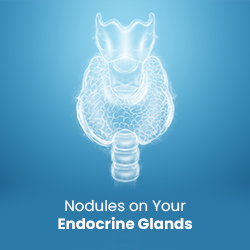Examining Your Heart Again Your heart beats about 100,000 times a day to keep you going. However, when something goes wrong, like congenital defects, weak valves, or blocked arteries, it needs expert care to continue beating strongly. That is something that advanced cardiac procedures and heart surgeries can help with. Let’s make the explanation of the different kinds of heart surgery simpler.
Types of Heart Surgeries
1.Coronary Artery Bypass Grafting (CABG)
Coronary artery bypass grafting (CABG) is a heart surgical procedure used to restore normal blood flow to the heart.When plaque buildup causes the coronary arteries to narrow or become blocked, a surgical procedure is done by grafting a healthy blood vessel from another area of the body, a new blood vessel is created that avoids the blocked artery.
- For what reason is it done? A bypass surgery helps restore blood flow when arteries are severely blocked and medications or stents are insufficient. This lowers the risk of a heart attack and enhances heart health in general.
- Time needed for recovery: 5–7 days in the hospital, 6–12 weeks to fully recover. Following surgery, it is crucial to adopt a heart-healthy lifestyle.
2.Heart Valve Repair & Replacement
The valves in your heart function as doors to make sure blood flows in the right direction. If a valve becomes too tight (stenosis) or starts to leak (regurgitation), your heart has to work harder, which can lead to heart failure, exhaustion, or dyspnea.
- Why is it carried out? Cardiac surgeons try to fix a slightly damaged valve in order to ensure smooth blood circulation and avoid complications; a mechanical or tissue valve is used in its place if it cannot be repaired.
- Recovery period: 4–8 weeks; hospital stay: 5–7 days. Individuals who have a mechanical valve may require blood thinners for the rest of their lives.
3.Minimally Invasive Heart Surgery
Minimally Invasive Heart Surgery is a surgical technique that treats heart conditions using small incisions instead of opening the chest. Specialized instruments and advanced technology allow surgeons to perform complex procedures with less trauma to the body.
- Why is it done? Suitable for heart valve repair, hole closure, or even bypass surgery, it’s an excellent choice for patients who need a quicker, less painful recovery.
- Recovery time: 3-5 days in the hospital; full recovery in 2-4 weeks—much faster than traditional surgery.
4.Transcatheter Aortic Valve Replacement (TAVR)
Transcatheter Aortic Valve Replacement (TAVR) is a minimally invasive procedure used to replace a narrowed aortic valve that fails to open properly, a condition known as aortic stenosis. Unlike traditional open-heart surgery, TAVR is performed by inserting a thin catheter through an artery, usually in the groin, to deliver and implant a new valve.
- Why is it carried out? An excellent alternative to major surgery for high-risk patients, it restores normal blood flow, lessens dyspnea, and enhances quality of life.
- Recovery period: The majority of patients return home in one to three days and start their regular routines again in one to two weeks.
5.Heart Transplant
A heart transplant is a surgical procedure where a donor’s healthy heart is replaced for a failed or diseased heart. It is typically performed on heart disease patients with advanced heart disease or end-stage heart failure when other therapies fail.
- Why is it done? A transplant can increase life expectancy, improve heart function, and restore energy when no other heart treatment is effective.
- Hospital stay: 2-4 weeks; full recovery: 3-6 months. To avoid rejection, immunosuppressive drugs must be taken for the rest of one’s life.
6.Congenital Heart Surgery
Congenital heart defects, from small holes to severe malformations that require surgical repair, are birth defects that interfere with the heart’s function as a pump.
- Why is it done? Early correction of congenital heart defects helps children grow up healthy and lead a normal life.
- Recovery time: Depends on the condition—some children recover in 2-4 weeks, while complex cases may require long-term follow-up and additional heart procedures.
Why is Trilife Hospital the Best Place for Cardiac Care?
The most critical aspect of treating the heart in Bangalore is to have the correct technology and specialists. Our cardiologists and cardiac surgeons at Trilife Hospital work towards delivering superior heart care, from complex surgeries to pain-free procedures that promote healing.
Seconds matter in emergencies—that’s why our 24/7 emergency cardiology service team is ever prepared to provide instant treatment for heart attacks and other life-threatening diseases. Cutting-edge technology is what you can expect at our hospital, with precision and perfection delivered in every cardiology procedure. Along with treatment, we are experts in complete recovery with individualized post-operative rehabilitation, which allows the patient to get back to strength and well-being even faster. At Trilife, your heart health is in the hands of expert hands.
Conclusion
Your heart is not an organ but the beat of your life. If healthy, you are active and full of vigor. Heart disease does impact not only day-to-day activity but also your lifestyle. Fortunately, with the application of cutting-edge cardiac treatment and therapies, heart care today is safer and superior to ever before. Trilife Hospital guides you through it all, starting from the choice to have or observe surgery and all the way up to the easy recovery post-surgery.
To reclaim control of your heart health, schedule an appointment with one of our specialists today!


